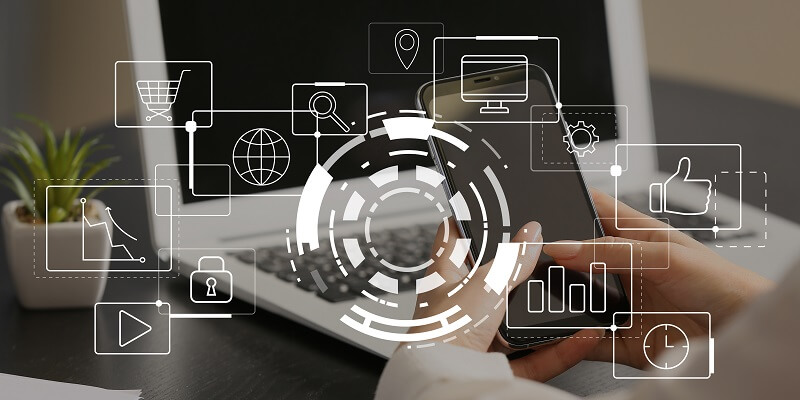The field of digital marketing is constantly evolving, and with it comes the need for faster, more efficient marketing techniques. One of the most notable developments in digital marketing is the increasing use of automated processes, from email marketing to social media management. Automation has become an integral part of the digital marketing ecosystem, and its importance cannot be overstated. In this article, we will explore the various facets of automation in digital marketing and how they can help marketers scale and improve campaigns for optimal effectiveness.
The Growing Ecosystem of Automation in Digital Marketing
Automation has become an important part of the digital marketing landscape. It’s an ecosystem that keeps growing, and the number of its components is constantly increasing, and will continue to do so. As technology advances, new automation tools and platforms are being developed to offer marketers innovative solutions that automate various aspects of the marketing process. From email marketing platforms like MailChimp to social media management tools like Hootsuite, the ecosystem of automation tools is expanding.
The importance of automation for scaling and improving campaign effectiveness cannot be overstated. Automation in digital marketing is more than just about reducing workload and saving time. It is necessary for scaling and improving the effectiveness of campaigns. By automating certain processes, marketers can free up their time and resources to focus on other aspects of their campaigns and optimize their strategies to achieve better results. Automation can help enhance targeting, optimize budgets, and improve overall campaign ROI.
The Need for Automation in Digital Marketing Analysis and Development
If you want your digital marketing to work more effectively and have time to analyze and develop your campaigns, automation is necessary. Automated tools can help gather important data and insights, which can then be used to optimize campaigns and improve targeting. This is particularly important as the volume of data collected grows, making it difficult for marketers to manually manage and process it all.
Personalization and the Power of Data Collection
One effective way to make use of the collected data is through personalization. Personalized content and messaging can have a significant impact on engagement and conversion rates. Surely, everyone has seen ads for T-shirts with their year of birth. A person is more likely to buy a T-shirt with their month and year of birth than one with random ones. Automated systems can collect data on customers’ interests, preferences, behavior, and demographics to deliver highly targeted and personalized content.
The role of a dashboard in data collection and visualization is essential to make the most of collected data. We have developed a dashboard that collects, compares, and organizes data on its own. The new-age manager can now spend just three hours preparing a report instead of three days. This time can now be spent on formulating hypotheses, searching for growth points, and suggestions for optimization instead of dealing with menial tasks such as “Ctrl + C” and “Ctrl + V”. Our dashboard automatically visualizes all of this in different views and sections, making it easier for marketers to analyze and optimize their campaigns.
Time Savings and ImprovedEfficiency for Managers
One of the most significant benefits of automation in digital marketing is the time savings it provides. By automating certain processes, managers can focus on higher-level tasks such as strategy development, analysis, and optimization. As a result, managers can work more efficiently, which is essential in today’s fast-paced business environment.
System Optimization through Automation and AI
One of the most important elements of automation is that systems can optimize campaigns based on our data. Automated systems can make informed decisions based on data analysis to improve targeting, messaging, and budget allocation. Artificial intelligence will assist us, but we must limit the number of variables, establish clear parameters, and set specific conditions.
Limitations of AI and Importance of Clear Conditions
While AI has the potential to revolutionize digital marketing, it is essential to recognize its limitations. AI can only work with the data available, and the quality of the data depends on the systems and processes used to collect it. Therefore, it is crucial to establish clear conditions for AI-based optimization to ensure that the AI system is making informed decisions based on accurate and relevant data.
Overall Optimization and Effectiveness of Marketing Automation
In conclusion, automation in digital marketing is becoming increasingly essential for scaling and improving campaigns. By automating certain processes, marketers can focus on higher-level tasks and optimize their campaigns for optimal effectiveness. With the increasing amount of data collected by automated systems, it is crucial to have a system in place for data collection and visualization. Automated systems can help optimize campaigns through AI-based decision-making, but it is important to set clear conditions for AI-based optimization.
In today’s fast-paced digital environment, marketers need to work smarter, not harder, and automation is the solution. By embracing automation, marketers can save time, improve efficiency, and achieve better results. The future of digital marketing is automation, and those who leverage it will have a significant competitive advantage.

